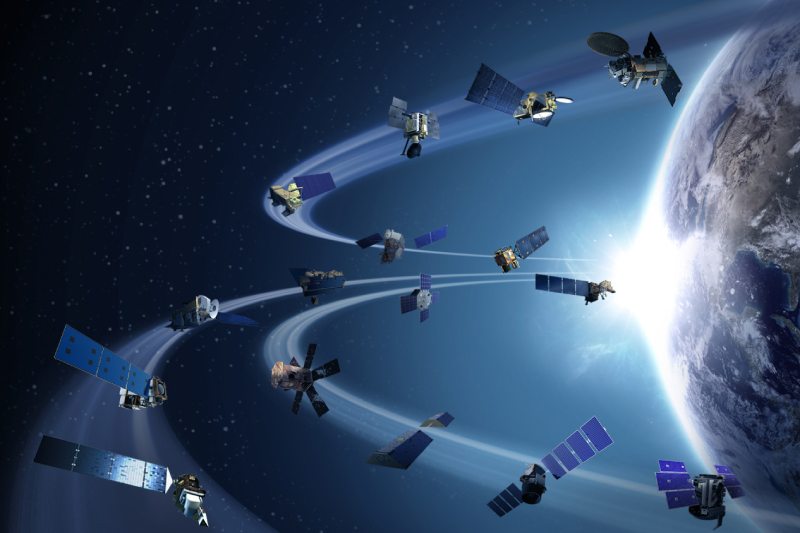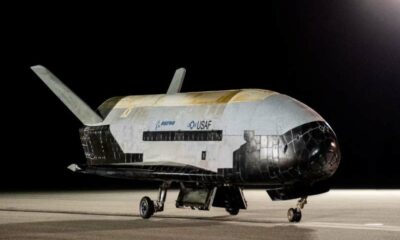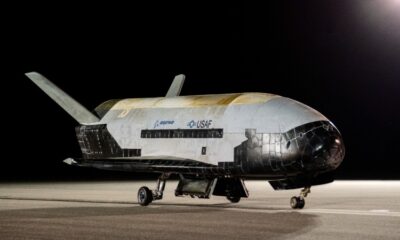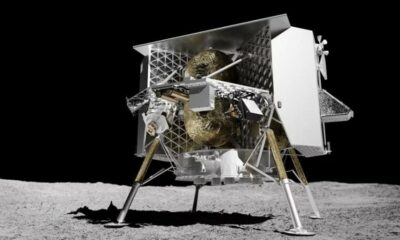Science
New Zealand became the second country to sign the Artemis Accords, a space agreement with NASA

New Zealand declared Tuesday it was the latest country to sign a space agreement with NASA, similarly as New Zealand’s early space industry starts to take off. New Zealand has joined a developing list of nations to sign the Artemis Accords. Dr. Peter Crabtree, head of the New Zealand Space Agency, signed the document during a ceremony on May 31 in Wellington. New Zealand is the second country to sign the Artemis Accords under the Biden-Harris Administration, following the Republic of Korea’s signature May 24.
New Zealand became the 11th signatory to the Artemis Accords, a blueprint for space participation and supporting the U.S. space agency’s plans to return humans to the moon by 2024 and to launch a historic human mission to Mars.
“New Zealand, along with seven other nations, helped craft the principles espoused in the Artemis Accords. These simple, universal principles will enable the next generation of international partnerships for the exploration of the Moon and beyond,” said NASA Administrator Bill Nelson. “The Artemis Accords belong to our partners as much they do to us.”
Foreign Minister Nanaia Mahuta said New Zealand was one of just a handful of countries ready to launch rockets into space.
“New Zealand is committed to ensuring the next phase of space exploration is conducted in a safe, sustainable, and transparent manner and full compliance with international law,” Mahuta said.
New Zealand said it’s especially interested in ensuring that minerals are taken from the moon or somewhere else in space are used sustainably.
New Zealand was one of the nations that added to the improvement of the Artemis Accords, which build up a practical set of principles to control space exploration collaboration among countries partaking in NASA’s 21st-century lunar exploration plans. It is the eleventh nation to sign the Artemis Accords, joining Australia, Canada, Italy, Japan, Luxembourg, the Republic of Korea, the United Kingdom, the United Arab Emirates, Ukraine, and the United States.
“New Zealand’s participation in the Artemis Accords is a historic moment for our nation and our highly-regarded local space industry,” said New Zealand Economic and Regional Development Minister Stuart Nash. “Space exploration increases our knowledge of our planet and universe, encourages research, science, and innovation, and New Zealand is proud to become a partner in the Artemis Accords.”
California-based organization Rocket Lab, which works in putting small satellites into space, made history in New Zealand four years prior when it launched a test rocket into space from the remote Mahia Peninsula. It started commercial launches in 2018.
Rocket Lab founder Peter Beck, a New Zealander, said signing the agreements was a testament to the nation’s growing role in the space industry and opened the door for joint effort and mission opportunities with NASA.
There could likewise soon be a second New Zealand launch site. The government declared Tuesday it was cooperating with Indigenous Maori to purchase land in the Canterbury region to foster a space launch site.
Appraisals show the New Zealand space industry is worth 1.7 billion New Zealand dollars ($1.2 billion) and that space manufacturing creates about NZ$250 million a year.
NASA Administrator Bill Nelson said in a statement that New Zealand was one of seven countries that aided craft the standards in the agreements and he was pleased they had signed up.
“Outer space is getting crowded,” said Kevin Covert, the acting U.S. ambassador to New Zealand. “As more countries establish a presence in outer space, via research stations, satellites, or even rocket launchers, these accords provide a set of principles to create a safe and transparent environment that inspires exploration, science, and commercial activities.”
Different signatories to the accords are the U.S., Australia, Britain, Canada, Italy, Japan, Luxembourg, South Korea, the United Arab Emirates, and Ukraine. Brazil likewise said it intends to sign.
NASA, in coordination with the U.S. Department of State, declared the establishment of the Artemis Accords in 2020. The Artemis Accords support and execute the 1967 Treaty on Principles Governing the Activities of States in the Exploration and Use of Outer Space, Including the Moon and Other Celestial Bodies, also called the Outer Space Treaty. They additionally build up the commitment by the United States and partner countries to the Registration Convention, the Agreement on the Rescue of Astronauts, and different standards of conduct that NASA and its partners have supported, including the public release of scientific information.
Extra nations will join the Artemis Accords in the months and years ahead, as NASA keeps on working with its international partners to build up a protected, peaceful, and prosperous future in space. Working with arising space organizations, as well as existing partners and well-established space offices, will add new energy and capacities to guarantee the whole world can profit from our journey of exploration and discovery.
-
Health3 weeks ago
Back to Roots: Ayurveda Offers Natural Cure for Common Hair Woes
-

 Tech3 weeks ago
Tech3 weeks agoFrom Soil to Silicon: The Rise of Agriculture AI and Drone Innovations in 2025
-

 Science7 days ago
Science7 days agoJuly Full Moon 2025: Everything You Should Need to Know, When and Where to See Buck Moon
-

 Sports3 weeks ago
Sports3 weeks agoFIBA 3×3 World Cup 2025: Full Schedule, Preview, and How to Watch
-

 Gadget4 weeks ago
Gadget4 weeks agoThings to Know about Samsung Galaxy S26: What’s New and What’s Next
-

 Tech4 weeks ago
Tech4 weeks agoAdobe Firefly App Now Available on iOS and Android Phones to Create AI Images and Videos Anywhere
-

 Sports2 weeks ago
Sports2 weeks agoPrefontaine Classic 2025: Full Schedule, Preview, Field, Events and How to Watch Diamond League Eugene Live
-

 Festivals & Events3 weeks ago
Festivals & Events3 weeks agoEverything You Should Need to Know about Summer Solstice 2025

























